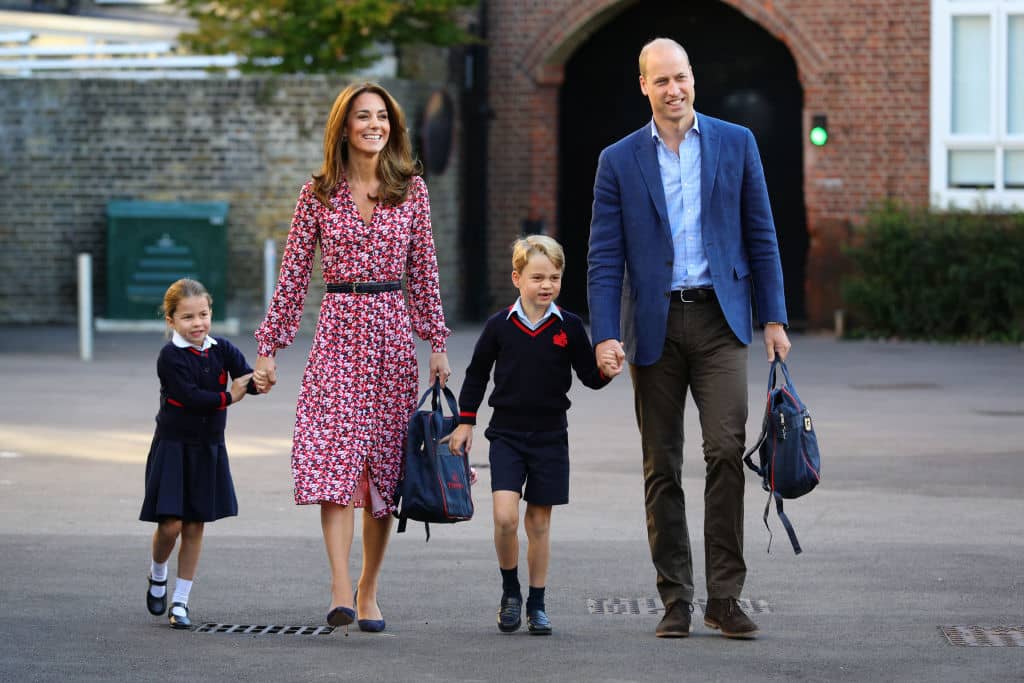The Duchess of Cambridge has been out and about hosting roundtables with very important people, discussing what can be done to support the nation’s pre-school children. Royal aides tell us she consulted ‘the sector’ to find out what should be done about the children who turn up for the first day of school barely able to speak or hold a pencil. What ‘the sector’ inevitably wants is more funding.
Kate Middleton has become the first royal to set up a think-tank, the Royal Foundation Centre for Early Childhood. This week she summoned ministers, civil servants and academics to discuss the findings of a poll: it seems most Britons want a bigger focus on early childhood. More worryingly the same poll, commissioned by the duchess herself, found that one in eight new parents look to celebrities on social media for parenting advice. Her solution seems to be to throw money at the problem.
She isn’t the only one. The Times education commission this week came straight out and asked for lots more cash – even floating the idea of giving every baby a barcode at birth to help the state keep tabs on errant pre-schoolers. This is all very well but it might occur to ordinary people that we should probably be asking questions of parents. Whose responsibility is it if young children are unready for the world?
Babies need a mother’s love to soothe and calm them
Talking about bad parenting has gradually become taboo. Earlier in the week one sector stalwart told us not to ‘blame’ parents if their children are utterly unready for school. The inconvenient truth is that parents matter. We need much higher expectations of parents and shouldn’t be ashamed to say so. The critical first few years set a template for life and the playful, loving interactions between parents and children are a vital ingredient. The last time the government took a proper look at this issue they found that parenting in the first few years had a ‘bigger influence on a child’s future than wealth, class, education or any other common social factor’. A statement of the obvious, perhaps – but for our political class it remains awkward to admit.
Instead, we subsidise childcare and childminders to replace parents. We hand out billions in benefits before a child even starts school, often to encourage parents of very young children to get back to work as quickly as possible. Wouldn’t that money be better spent allowing parents the time to raise their own children? The Treasury is eyeing up further subsidies to hand out ‘free’ childcare places for two-year-olds, eager to get parents back to work more quickly – to pay more tax.
Yes, government might need more cash, but we should listen to the science. Neuroscience is very clear about the fact that babies need a mother’s love to soothe and calm them: mothers literally build a baby’s brain and in doing so set them up for later life. If we listen to the science, we’re told that it’s oxytocin produced by mums that builds the social bits of the brain in the first three years of life. Put simply, mothers are uniquely placed to build secure attachment for babies – which in turn means they stand a better chance of dodging future mental anguish. This is something American author and psychoanalyst Erica Komisar calls ‘the uniqueness of mothers’. This doesn’t mean fathers get off the hook: there is plenty of evidence to show that their involvement improves cognitive ability in toddlers.
We need more motherhood and apple pie. Certainly the motherhood bit, the apple pie part might fall foul of obesity campaigners – another group who oddly ignore parents. Policymakers talk cryptically about the ‘home learning environment’ rather than parents. And that means they think about state interventions and funding formulas rather than giving mothers and fathers the tools to be good at raising children.
We expect nothing in return for the billions doled out to parents, unlike Universal Credit where cash comes with expectations. We could, for example use birth registration, a point when almost all parents turn up, as a time to nudge parents to take up parenting classes or seek support if it is needed. Our tax and benefits system is woefully out of sync with parents. Every year the Department for Education conducts a mega-poll of parents – and every year frazzled mums (and dads) say they would prefer to spend less time working and more time with their children. Our tax system is cruelly biased against parents and the benefits they can claim can only be used to subsidise someone else to look after the children. Later this year backbench Conservative peer Lord Farmer will call on the government to back a private members bill to ‘frontload’ child benefit to parents of pre-schoolers, giving them more money in the first few years and a little less later on. The government should give it careful thought.
The pandemic has been unkind to the nation’s children: gaps in learning have grown, with better off kids striding ahead. Poorer children starting school at four are already, on average, a year and a half behind their wealthier classmates. We can tinker all we like but, as the royals know, it’s family life that matters most. But that’s not something that you’ll hear much in Westminster or Kensington Palace, where talking about family really does remain the last educational taboo.






Comments